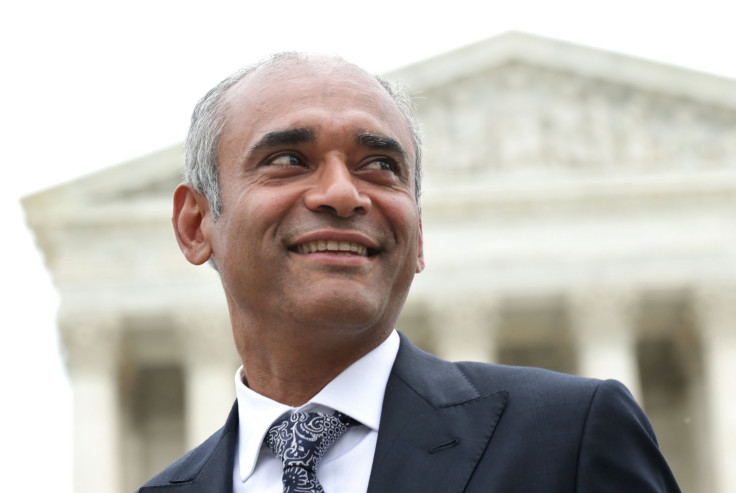Aereo Shows Why True Web-TV Is A Pipe Dream Until Big TV Decides It Isn't

Aereo’s last-ditch gambit last week -- to accelerate an appeal in U.S. district court -- showed just how desperate the startup is to preserve its remaining cash, but also how distant the notion idea of Web-delivered TV remains.
Last week, Aereo asked a U.S. District Court judge to accelerate its appeal of a Supreme Court decision that effectively shut down the Web-TV service June 28. The Supreme court ruling, while decisive, gave Aereo a little wiggle room. Specifically, whether Aereo should be classified as a cable company for copyright purposes. As Justice Sandra Sotomayor said, “they’re a cable company, they get a compulsory license.”
A cable company. Aereo, a two-year-old startup that attempted to re-map the TV ecosystem by leasing tiny antennas to users who pay $8 a month for over-the-air broadcasts on their computers, is now using those words as a last-ditch lifeline. Aereo now seeks to prove its the equivalent of a cable company in order to win a “compulsory license” for content, which means the TV companies that fought Aereo can't deny it their signal.
It’s a longshot, in nearly everyone’s estimation, mostly because the courts have repeatedly said, rightly or wrongly, that over-the-Web transmission isn't broadcast for copyright purposes and therefore not the equivalent of cable TV. "They had a viable loophole the first time around," Brent Skorup, a telecom policy scholar at George Mason University's Mercatus Center, said. "Now they are trying to thread a much thinner needle."
Aereo, which raised nearly $100 million, has enough cash to make its argument but not much more. In a filing, CEO Chet Kanojia said the company has enough capital to last another six or seven months. The final hearing on a potential injunction is scheduled for Sept. 5. In the meantime, Aereo is bleeding users and employees while it suspends service. Aereo didn't respond to a request for comment.
But even if Aereo were allowed to continue operating as a cable company, the question is how long that would last. Some of the biggest tech companies on earth have attempted to take on Comcast, DirecTV and Time Warner only to find that the cost of content, access to bandwidth and in some cases set-top hardware make the cable business just too expensive. At the end of the day, you’re still paying for content, and then paying the companies you’re trying to disrupt -- cable and telcos -- for broadband access to the home.
“You’re cloning Comcast,” Tom Morgan, CEO of Net2TV, a startup that provides a free TV service, said. “And what makes you think you can beat Comcast at their own game and still use their network?”
While online services like Netflix Inc. (NASDAQ:NFLX), Hulu, Crackle and some others have made a go of it licensing TV and movies for on-demand viewing, the idea of live TV over the Web is restricted largely to special events like CBS Corp.’s (NYSE:CBS) March Madness or Univision’s World Cup coverage. Cable is locked behind clunky “TV Everywhere” log-in schemes where you prove you’ve paid for cable TV first.
Intel Corp. (NASDAQ:INTC), Sony Corp. (NYSE:SNE), Apple Inc. (NASDAQ:AAPL), Google Inc. (NASDAQ:GOOGL) and Microsoft Corp. (NASDAQ:MSFT) -- companies with no content or pipes -- have all failed to break into the TV ecosystem. The truth is the companies most likely to do so are already providing pay-TV service. Verizon bought Intel’s unlaunched OnCue Web TV service; DirecTV has said it is planning on its own Web-delivered offering.
Then there are the content companies that are toying with Web-based direct-to-consumer offerings. HBO is already doing this in Nordic countries, but its 30,000 U.S. subscribers pay for it on their cable and satellite TV bills.
And then there’s Rupert Murdoch’s attempt to acquire Time Warner Inc. (NYSE:TWX). BTIG Research analyst Richard Greenfield argues that the combination of Twenty-First Century Fox Inc. (NASDAQ:FOXA) and Time Warner would give Murdoch enough content and sports rights to credibly offer a direct-to-consumer service, bypassing cable. This could take the form of linear TV or a video-on-demand service to compete with Amazon Inc. (NASDAQ:AMZN) and Netflix.
Without the law on its side, Aereo with 77,000 subscribers at its peak, has no leverage in this fight. If you’re waiting for TV to go over-the-top, look for a big TV operator to do it first.
© Copyright IBTimes 2025. All rights reserved.






















